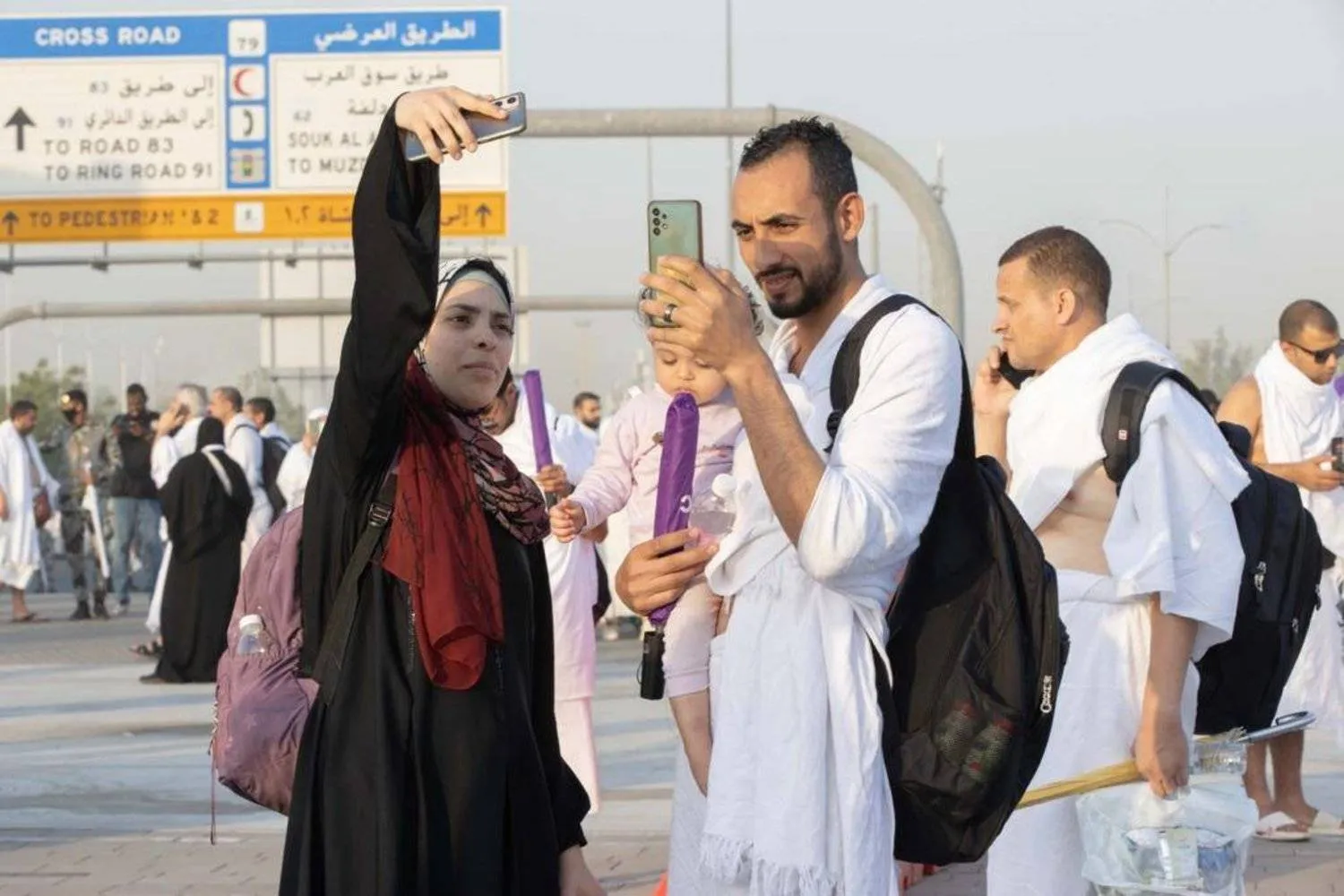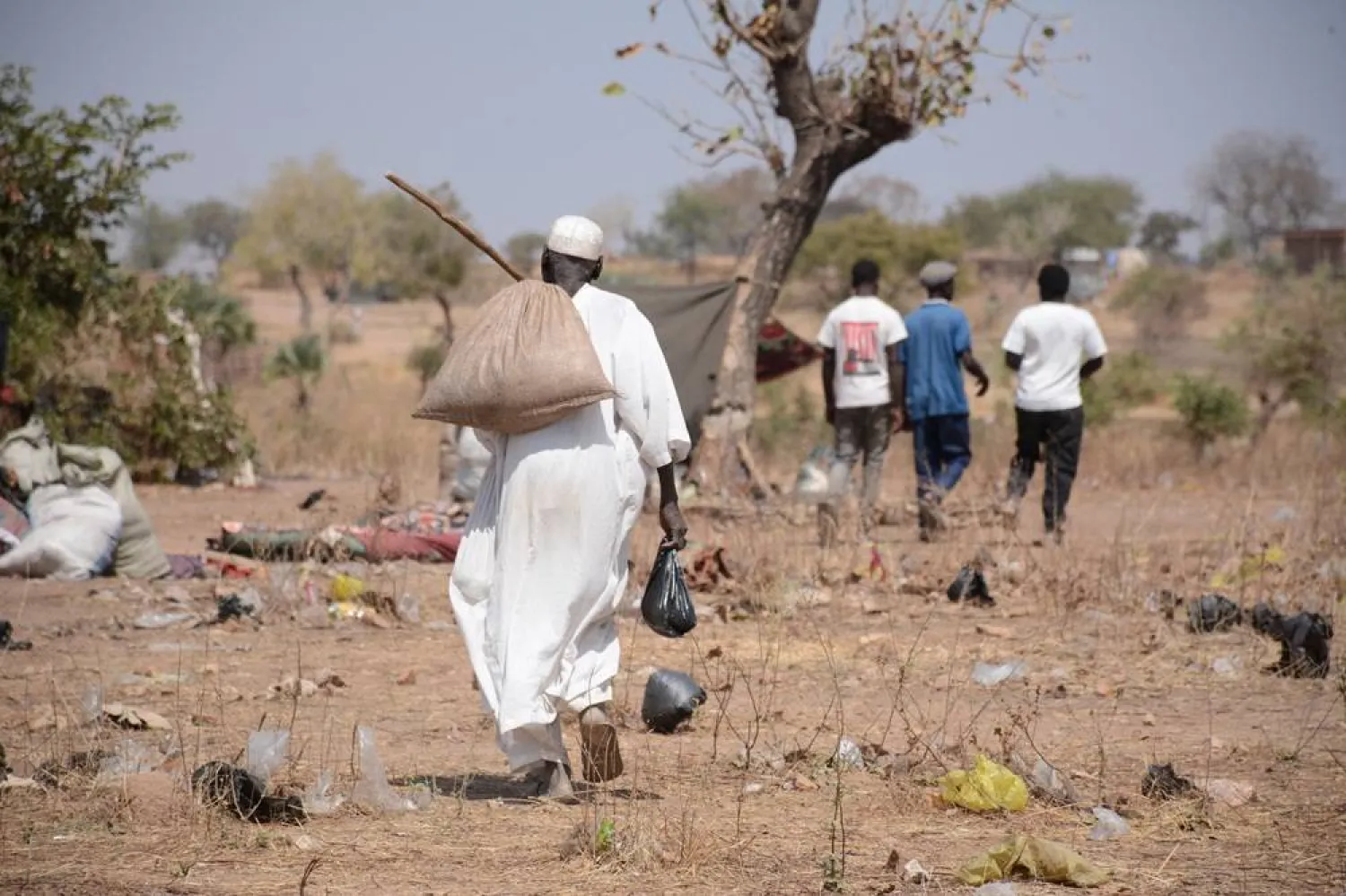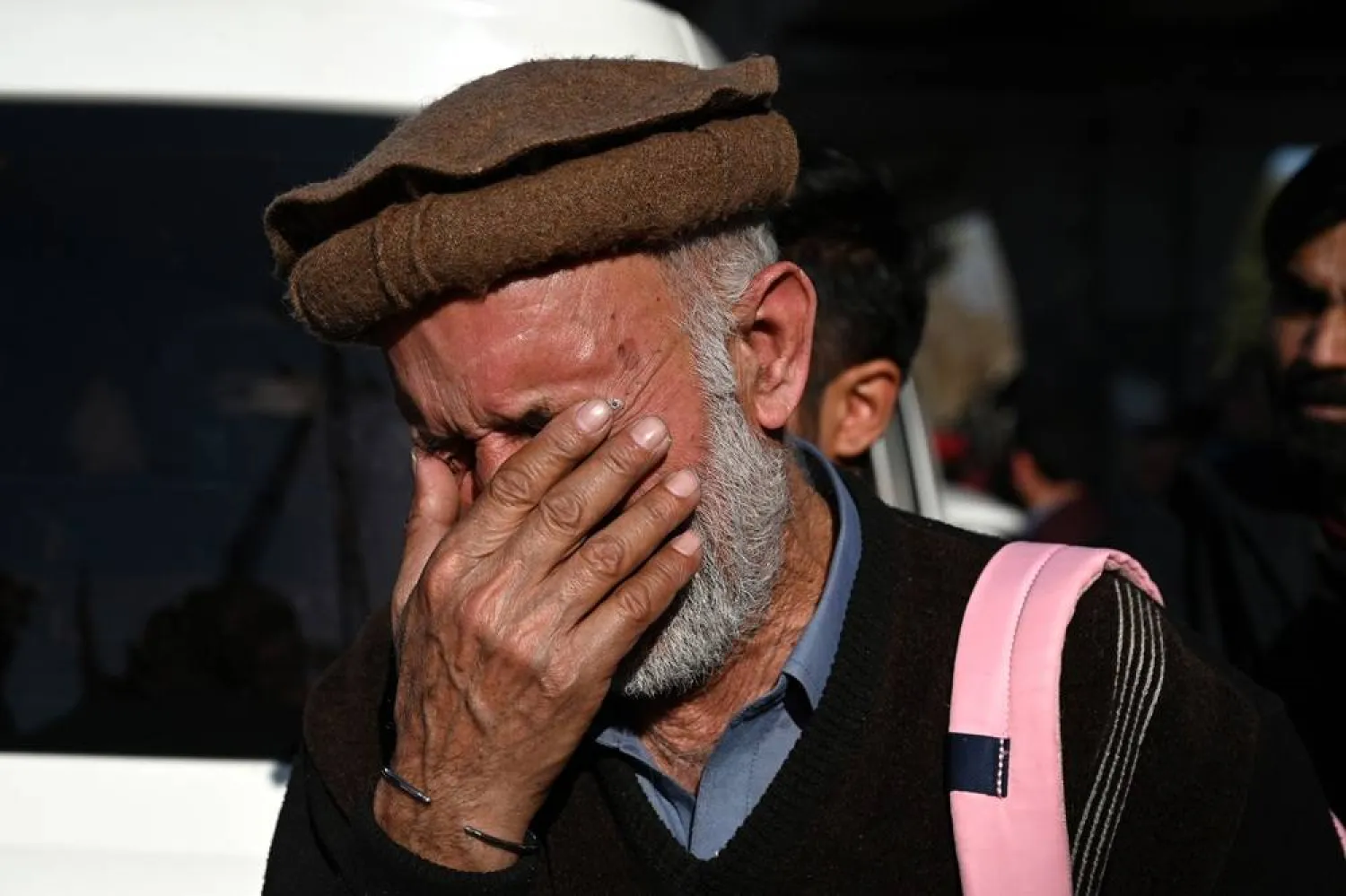The pilgrims are immersed in a spiritual and ethereal atmosphere as they perform the fifth pillar of Islam in the sacred sites of Makkah. A profound experience that will forever be etched in their minds as they eagerly recount every detail to their loved ones, longing to come back again the years to come.
The pilgrims talk about the place, the people, the services, the huge facilities, and the civilized structures of the sacred sites, which they convey through their phones in photos and video clips.
Bassam Muadi, who comes from Jordan to perform the religious rituals, says that the image and the video clip inside the sacred sites have a great impact, because they document his visit to the purest parts of the earth.
Muadi, 54, said that he was in constant contact with his family, to convey the spirituality of the place, the hospitality of the people, and the services provided to the guests of Rahman, which he said were a source of pride for every Arab and Muslim.
For his part, Bassam Abdullah, from Syria, said that words cannot describe the extent of the love and magnificence of the place, pointing out, after taking the picture with his family in the holy sites: “The sacred sites are truly indescribable. It is a journey that I have waited for many years... I will tell my family and friends about the beauty of the place and human generosity, about the splendor of the facilities and the great efforts devoted to serving everyone.”
In turn, Ahmed Ali al-Hajj, from Somalia, said: “The photo may be natural, but years later it will have a special impact on the soul. So preserving all the images and clips is absolutely necessary and at the forefront of priorities...”
Hajj Ahmed continued, "Here lies a spirituality unmatched, and an Islamic gathering like no other... We have come from the far corners of the Earth, with sincere prayers and eyes brimming with tears, seeking forgiveness from the Almighty."









